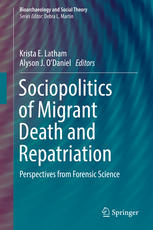

Most ebook files are in PDF format, so you can easily read them using various software such as Foxit Reader or directly on the Google Chrome browser.
Some ebook files are released by publishers in other formats such as .awz, .mobi, .epub, .fb2, etc. You may need to install specific software to read these formats on mobile/PC, such as Calibre.
Please read the tutorial at this link: https://ebookbell.com/faq
We offer FREE conversion to the popular formats you request; however, this may take some time. Therefore, right after payment, please email us, and we will try to provide the service as quickly as possible.
For some exceptional file formats or broken links (if any), please refrain from opening any disputes. Instead, email us first, and we will try to assist within a maximum of 6 hours.
EbookBell Team

0.0
0 reviewsAs scholars have by now long contended, global neoliberalism and the violence associated with state restructuring provide key frameworks for understanding flows of people across national boundaries and, eventually, into the treacherous terrains of the United States borderlands. The proposed volume builds on this tradition of situating migration and migrant death within broad, systems-level frameworks of analysis, but contends that there is another, perhaps somewhat less tidy, but no less important sociopolitical story to be told here.
Through examination of how forensic scientists define, navigate, and enact their work at the frontiers of US policy and economics, this book joins a robust body of literature dedicated to bridging social theory with bioarchaeological applications to modern day problems.
This volume is based on deeply and critically reflective analyses, submitted by individual scholars, wherein they navigate and position themselves as social actors embedded within and, perhaps partially constituted by, relations of power, cultural ideologies, and the social structures characterizing this moment in history.
Each contribution addresses a different variation on themes of power relations, production of knowledge, and reflexivity in practice. In sum, however, the chapters of this book trace relationships between institutions, entities, and individuals comprising the landscapes of migrant death and repatriation and considers their articulation with sociopolitical dynamics of the neoliberal state.